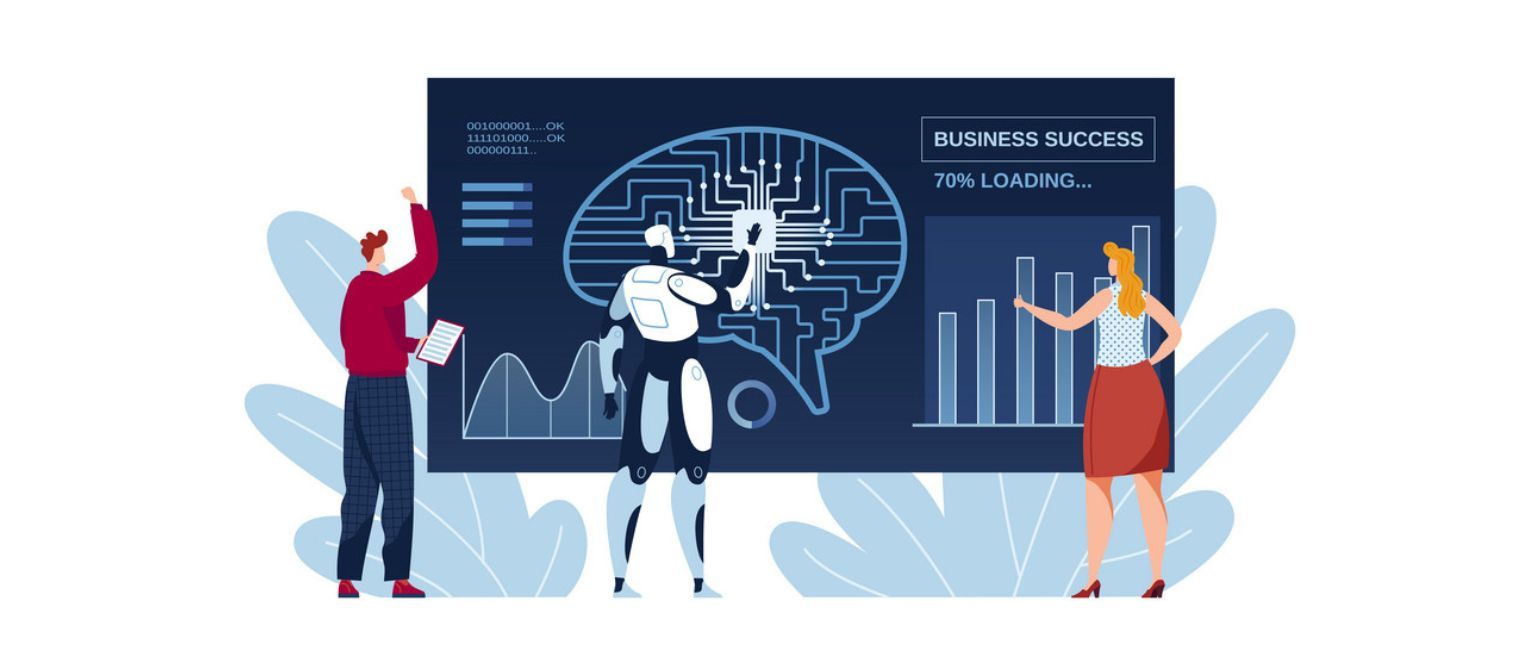Artificial Intelligence (AI) continues to transform various sectors, including the software industry. One AI model that has been making headlines is ChatGPT. Created by OpenAI, ChatGPT is a language model that generates human-like text, making it a valuable asset in a myriad of business applications where human-like conversation is desired. From generating articles, screenplays, song lyrics, to contracts and more, the possibilities are endless1.
However, the question that begs an answer for many businesses is: what does ChatGPT truly mean for your business? How can it be leveraged in the context of staff augmentation, dedicated teams, and software outsourcing? In this post, we will discuss the potential uses of ChatGPT, its benefits, and how businesses can optimize its application in their operations.
Uses of ChatGPT
Marketing
In the realm of marketing, ChatGPT can be a game-changer. Content marketers can utilize this AI model to generate marketing materials such as product descriptions and email newsletters. The AI has the capability to learn and emulate the style and tone of a business’s marketing materials, generating new content that aligns with the business’s brand and voice. Moreover, it can generate initial ideas for content, propose possible titles for the content you develop, and even help in shortening text for platforms with word or character limits.
While ChatGPT can be a powerful tool, it’s crucial to remember that it isn’t perfect. It is known for being excessively wordy, overusing certain phrases, and providing the same response to multiple users for the same query, thus lacking personalization. However, these limitations can be addressed by providing context and carefully reviewing ChatGPT-generated content.
Customer Care
In the context of customer care, ChatGPT can be used to generate responses for your chatbots, increasing their effectiveness and automating tasks traditionally performed by humans. The AI model can also gather data and develop insights about customer preferences, guiding product and service development to better meet customer needs
Project Management
Project management is another area where ChatGPT can prove to be useful. The AI model can help manage task lists, assign tasks to team members, track deadlines and monitor progress, generate detailed reports, provide reminders for upcoming deadlines and events, keep project-related materials in one place, and even offer suggestions for process improvement.
"Using AI tools allows employees to focus more on creative and innovative tasks and less on administrative work. However, when employed as a work tool, we still need to be mindful to keep the human in the loop to ensure accuracy and proof the results."
Hiring
When it comes to hiring, ChatGPT can be a useful tool for evaluating resumes to determine if applicants have relevant experience. Additionally, after the hiring process, ChatGPT can take over some of the training processes, cutting back on the hours your employees must spend on this effort. It can help you develop training materials, create assignments, quizzes, and tests that make learning more targeted, and track employee progress to ensure they are retaining the information you are sharing.
Other Tasks
Apart from the tasks mentioned above, ChatGPT can also be used for research, coding, and translation. However, it’s important to note that while ChatGPT can perform research on any topic, information gleaned from the chatbot should always be fact-checked using other sources. For coding tasks, developers need to sign up with OpenAI for an API key. Lastly, while ChatGPT can translate between languages, it lacks contextual, cultural, and linguistic knowledge, so translations may not be entirely accurate1.
Benefits of ChatGPT
ChatGPT can be thought of as a supercharged search engine. It cannot perform all tasks or replace all workers but can be highly beneficial as a tool in many parts of your business
Other Tasks
According to a recent survey, nearly half of the professionals reported using AI tools, including ChatGPT, for work-related tasks, most of them without their bosses’ knowledge. ChatGPT has found use in various tasks such as creating resumes and cover letters, copywriting, programming, and drafting sales and marketing emails. It’s not just limited to these, it can also be used to draft HR policies and provide advice on challenging situations like employee disagreements, theft, and more.
In a staff augmentation setup or dedicated teams, ChatGPT can augment the abilities of team members depending on their roles. It allows employees to focus more on creative and innovative tasks and less on administrative work, thereby enhancing productivity.
However, it’s important to note that AI-generated work cannot be taken at face value. While mostly accurate, it often makes mistakes. So, when employed as a work tool, there is still a need to keep the human in the loop to ensure accuracy and proof the results.
Software Outsourcing
In the context of software outsourcing, ChatGPT has been found to positively contribute to computer programming. It can resolve coding issues and expedite the development process when programmers are struggling, giving skilled developers more time to focus on solving more complex challenges. However, it also reduces the need for entry-level programmers.
But, as with any tool, the use of ChatGPT needs to be managed responsibly. If a company’s mission is to produce content, generate graphics/videos, or publish articles, they need to acknowledge where their content came from, whether it’s a source, a gallery, a photographer, a book, or an AI tool. Other companies that decide to use AI for non-published works are making calculated decisions to do so to enhance their company.
Given the potential for users to appropriate other people’s work, ChatGPT’s creators released a second tool to detect plagiarism: ChatGPT Plagiarism. It’s important for leaders to educate themselves and their teams on the pros and cons of using AI tools and lead the dialogue internally about using these tools, the benefits for their industry, and discuss any downsides with staff.
Conclusion
While ChatGPT cannot perform all tasks or replace all workers, it can be highly beneficial as a tool in many parts of your business. The integration of AI into business practices, including staff augmentation, dedicated teams, and software outsourcing, presents an exciting prospect for enhancing productivity and innovation. This is particularly true when these tools are used responsibly, with a clear understanding of their capabilities and limitations.
ChatGPT, like any other tool, is only as good as how you use it. It is there to augment human capabilities, not to replace them. With careful implementation and thoughtful use, ChatGPT has the potential to be a game-changer for your business. However, like all powerful tools, it must be used responsibly and ethically.
Remember that while AI tools like ChatGPT can generate text based on vast amounts of data, they don’t understand the content in the way humans do. They don’t have the ability to understand context, culture, or subtleties of language, and their use should always be monitored and texts reviewed by humans.
The introduction of AI into the workplace is a growing trend that cannot be ignored. As we continue to explore and understand the capabilities and implications of tools like ChatGPT, businesses have the opportunity to improve their operations, provide better services to their customers, and create more innovative products.
As with any new technology, the key to successful implementation lies in understanding the tool’scapabilities, its potential benefits, and the risks involved. It’s essential to provide employees with the necessary training and guidelines to use these tools responsibly and ethically, to ensure that they add value to the business without compromising the quality of work or the trust of customers.
ChatGPT is an exciting development in the AI world, and it holds a lot of potential for businesses, especially in the areas of staff augmentation, dedicated teams, and software outsourcing. As we continue to understand and leverage its capabilities, it will undoubtedly continue to reshape the way we work and conduct business. However, it’s crucial to remember that it’s a tool to assist humans, not replace them, and its use should always be guided by human judgment and ethical considerations.
In conclusion, the integration of AI tools like ChatGPT in business practices presents an exciting opportunity for businesses to enhance productivity and innovation. However, it’s also a responsibility that calls for mindful and ethical use of these tools. As we continue to navigate the AI landscape, let’s ensure we do so with the goal of augmenting human capabilities and driving meaningful progress in our businesses.
Remember, the future of your business doesn’t lie solely in the tools you use, but how you use them. Let’s use them wisely to create a future that is as innovative as it is responsible.


